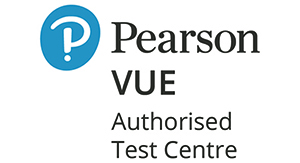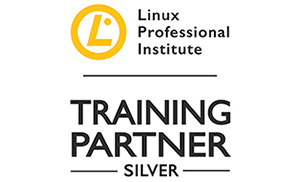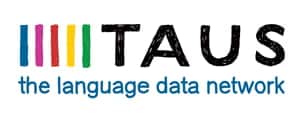ISTQB Certified Tester Security Tester Training Course
ISTQB Certified Tester Security Tester Certification
The ISTQB Certified Tester Security Tester is an instructor-led, hands-on certification training course. This course covers security testing strategies, security testing throughout the software lifecycle, security testing evaluation and reporting, security testing tools and more.
This course is available in Melbourne, Sydney, Brisbane, Adelaide, Canberra, Perth, Hobart and throughout Australia live virtually.
- Basic security and security testing concepts are assumed be known
- Candidates can achieve this certification by passing the following exam(s)
- Certified Tester Security Tester
- Course material for Certified Tester Security Tester provided
- Instructor-led classroom training at our premises
- Live virtual online training in real-time attended from anywhere
- In-house training at your premises (4+ participants)
- Plan, perform and evaluate the security tests from different points of view
- Evaluate an existing security test suite and identify any additional security tests that may be required
- Analyse a given set of security policies and procedures together with the results of security tests to determine their effectiveness
- Identify security testing objectives for a given project scenario based on functionality, technology attributes and known vulnerabilities
- Analyse a given situation and determine which security testing approaches are most likely to be successful in that situation
- Identify areas where additional or enhanced security testing may be required
- Evaluate the effectiveness of security mechanisms
- Help the organisation build awareness of information security
- Demonstrate the mindset of an attacker by finding out key information about a target, performing actions on a test application in a protected environment that a malicious person would perform, and understanding how evidence of the attack might be erased
- Analyse an interim security testing status report to determine the level of accuracy, understandability and appropriateness for stakeholders
- Testers wishing to expand their knowledge in Security Testing
- Test Managers
- Test Team Leaders
- Development Managers
- IT Directors
- Project Managers
- The Basis of Security Testing
- Security Risks
- The Role of Risk Assessment in Security Testing
- Asset Identification
- Analysis of Risk Assessment Techniques
- Information Security Policies and Procedures
- Understanding Security Policies and Procedures
- Analysis of Security Policies and Procedures
- Security Auditing and Its Role in Security Testing
- Purpose of a Security Audit
- Risk Identification, Assessment, and Mitigation
- People, Process and Technology
- Security Testing Purposes, Goals and Strategies
- Introduction
- The Purpose of Security Testing
- The Organisational Context
- Security Testing Objectives
- The Alignment of Security Testing Goals
- Identification of Security Test Objectives
- The Difference Between Information Assurance and Security Testing
- The Scope and Coverage of Security Testing Objectives
- Security Testing Approaches
- Analysis of Security Test Approaches
- Analysis of Failures in Security Test Approaches
- Stakeholder Identification
- Improving the Security Testing Practices
- Security Testing Processes
- Security Test Process Definition
- ISTQB Security Testing Process
- Aligning the Security Testing Process to a Particular Application Lifecycle Model
- Security Test Planning
- Security Test Planning Objectives
- Key Security Test Plan Elements
- Security Test Design
- Security Test Design
- Security Test Design Based on Policies and Procedures
- Security Test Execution
- Key Elements and Characteristics of an Effective Security Test Environment
- The Importance of Planning and Approvals in Security Testing
- Security Test Evaluation
- Security Test Maintenance
- Security Testing Throughout the Software Lifecycle
- The Role of Security Testing in a Software Lifecycle
- The Lifecycle View of Security Testing
- Security-Related Activities in the Software Lifecycle
- The Role of Security Testing in Requirements
- The Role of Security Testing in Design
- The Role of Security Testing in Implementation Activities
- Security Testing During Component Testing
- Security Test Design at the Component Level
- Analysis of Security Tests at the Component Level
- Security Testing During Component Integration Testing
- Security Test Design at the Component Integration Level
- The Role of Security Testing in System and Acceptance Test Activities
- The Role of Security Testing in System Testing
- The Role of Security Testing in Acceptance Testing
- The Role of Security Testing in Maintenance
- Testing Security Mechanisms
- System Hardening
- Understanding System Hardening
- Testing the Effectiveness of System Hardening Mechanisms
- Authentication and Authorisation
- The Relationship Between Authentication and Authorisation
- Testing the Effectiveness of Authentication and Authorisation Mechanisms
- Encryption
- Understanding Encryption
- Testing the Effectiveness of Common Encryption Mechanisms
- Firewalls and Network Zones
- Understanding Firewalls
- Testing Firewall Effectiveness
- Intrusion Detection
- Understanding Intrusion Detection Tools
- Testing the Effectiveness of Intrusion Detection Tools
- Malware Scanning
- Understanding Malware Scanning Tools
- Testing the Effectiveness of Malware Scanning Tools
- Data Obfuscation
- Understanding Data Obfuscation
- Testing the Effectiveness of Data Obfuscation Approaches
- Training
- The Importance of Security Training
- How to Test the Effectiveness of Security Training
- Human Factors in Security Testing
- Understanding the Attackers
- The Impact of Human Behaviour on Security Risks
- Understanding the Attacker Mentality
- Common Motivations and Sources of Computer System Attacks
- Understanding Attack Scenarios and Motivations
- Social Engineering
- Security Awareness
- The Importance Of Security Awareness
- Increasing Security Awareness
- Security Test Evaluation and Reporting
- Security Test Evaluation
- Security Test Reporting
- Confidentiality of Security Test Results
- Creating Proper Controls and Data Gathering Mechanisms for Reporting Security Test Status
- Analysing Interim Security Test Status Reports
- Security Testing Tools
- Types and Purposes of Security Testing Tools
- Tool Selection
- Analysing and Documenting Security Testing Needs
- Issues with Open-Source Tools
- Evaluating a Tool Vendor’s Capabilities
- Standards and Industry Trends
- Understanding Security Testing Standards
- The Benefits of Using Security Testing Standards
- Applicability of Standards in Regulatory Versus Contractual Situations
- Selection of Security Standards
- Applying Security Standards
- Industry Trends
- Where to Learn of Industry Trends in Information Security
- Evaluating Security Testing Practices for Improvements

Get a Certificate of Attendance to prove your commitment to learning

This training course does not have any exam associated with it

Course material in digital format is included for flexibility and ease of use

Practise questions are provided for better understanding of the key concepts

Attend the course with an instructor at our training center or from anywhere

Relax, we will beat competitor’s advertised price in Australia. Our course has no extra costs
| Location | Type | Duration | Price | Dates | |
|---|---|---|---|---|---|
| Location | Type | Duration | Price | Dates |
The supply of this course/package/program is governed by our terms and conditions. Please read them carefully before enrolling, as enrolment is conditional on acceptance of these terms and conditions. Proposed dates are given, courses run subject to availability and minimum registrations.
Find out why we are the leading choice to help boost your career in Australia
| Approachable and knowledgeable; comfortable surroundings. Logitrain does make IT training easier |
I recently followed the ITIL Foundation course at Logitrain. The training, materials and facilities were excellent and I would not hesitate to train with Logitrain again.
Thanks for a great week! Really enjoyed and feel I picked up a lot. Great Trainer! Will definitely look at further studies here.
Well-presented and able to convey immense knowledge to class. All queries were responded to promptly.
Excellent teaching method, easy to understand.
Logitrain provided a valuable insight into ITIL and enabled me to excel and advance my knowledge through a simple and well organised series of sessions.
Great place to study for certification, knowledgeable persons, excellent customer service. Ready to answer queries on the spot, very helpful.
The trainer was very patient and gave everybody the opportunity to participate.
The trainer explained everything very well. Logitrain was very helpful for me in getting a better overall understanding of CCNA. I previously had studied it 2 years earlier but required revision
Over 1000 organisations have relied on Logitrain to be their trusted training partner.

Don’t Wait. Please fill the form now.




































































